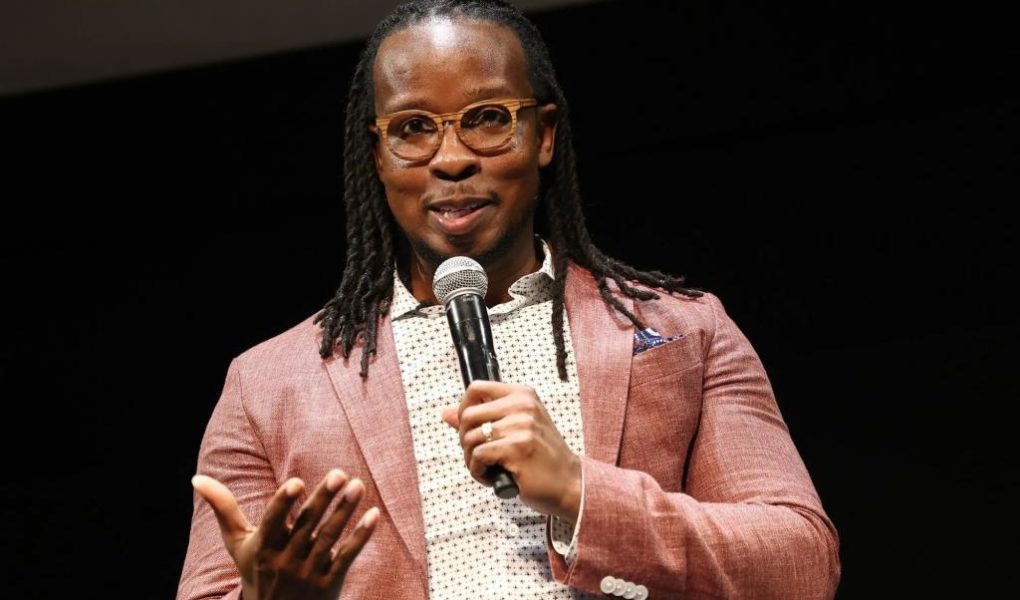
The real measure of an individual’s character isn’t what he portrays to the public but how he treats people in private.
Truly righteous people treat others with respect and dignity when there is no one else around and no social credit to be earned for doing the right thing.
This distinction matters — especially for people who’ve made a career lecturing others on the appropriate way to treat people, especially those with perceived less power in society.
But when no one was looking and nothing was to be gained, it seems Ibram X. Kendi used his power and privilege as the director of a think tank to exploit and mistreat the people who worked underneath him as if they were people who are beneath him.
Amid confirmation of layoffs being made at Boston University’s Center for Antiracist Research, former and current faculty have spoked out about the mismanagement, “exploitation” and enrichment of Kendi.
“There are a number of ways it got to this point, it started very early on when the university decided to create a center that rested in the hands of one human being, an individual given millions of dollars and so much authority,” stated Spencer Piston, BU political science professor.
Former assistant director of narrative at the center and a BU associate professor of sociology and African American & Black Diaspora Studies, Saida Grundy, also described a lack of structure, leading to her working additional hours that were unreasonable, especially for the pay she was receiving.
“It became very clear after I started that this was exploitative and other faculty experienced the same and worse,” Grundy lamented.
With tens of millions of dollars flowing in from major donors shortly after the center’s founding in 2020 from Twitter founder Jack Dorsey, the Rockefeller Foundation and biotech company Vertex, Grundy also saw the missed opportunity to directly help black students at Boston University.
“Those donations could have been going to benefit black students.”
Grundy is correct that much of the donation money could have been utilized in objectively more helpful ways to serve the people Kendi claimed to be advocating for. But the line between rhetoric and action was a line that Kendi never had any intentions of crossing.
Kendi used the dogma of antiracism to project a new moral standard at a time when many Americans momentarily questioned their behavior and culpability.
As he demanded that everyone should check their privilege and feel socially accountable for the exploitation of people, he was simultaneously exploiting the emotions of a nation to solidify his nobility status amongst the upper class in academia.
Kendi’s boutique moral philosophy on historical events and human interaction has only made him notable amongst the upper class.
Those elites declare racial enlightenment over the naïve majority who prefer to treat people like they’d want to be treated.
The antiracism think tank operated more like an antiracism piggybank with only one man listed as its financial beneficiary.
Kendi’s interest have become clearer as time has gone on: His “research center” was for the benefit of one black person, not black people.
Remember the $90 million windfall Patrisse Cullors and the Black Lives Matter organization scored and their frivolous spending habits with donation money, buying mansions and funneling cash to board and family members?
Activist Shaun King has also repeatedly been accused of raising money for recipients and causes that never saw it.
This is a similarly disappointing realization after tens of millions of dollars have been placed in the hands of an advocate who has shown little regard to produce a return for his bold aspirations.
Kendi had systemic control over his own research center yet used his position to take advantage of the people whom he was leading and continued to reap the academic clout that legitimizes his profiting in over $32,000 a speech.
Kendi suggests that people should become more race-conscious to be better anti-racists, but I believe it’s more important to be elitist conscious.
We need to be aware of the behavioral patterns and condescending rhetoric of the people who think they know better than us about everything.
If we were all good anti-elitists, we’d ignore the utopian rhetoric of social progressives and anti-racists and focus on their behavior.
This readjustment would help us quickly realize that race is a tool to distract us from noticing they are getting rich from dividing us into categories of human characteristics.
The only remedy to moral elitism is moral anti-elitism: This is how we have an anti-elitist society.
Adam B. Coleman is the author of “Black Victim to Black Victor” and founder of Wrong Speak Publishing. Follow him on Substack: adambcoleman.substack.com.
𝗖𝗿𝗲𝗱𝗶𝘁𝘀, 𝗖𝗼𝗽𝘆𝗿𝗶𝗴𝗵𝘁 & 𝗖𝗼𝘂𝗿𝘁𝗲𝘀𝘆: nypost.com
𝗙𝗼𝗿 𝗮𝗻𝘆 𝗰𝗼𝗺𝗽𝗹𝗮𝗶𝗻𝘁𝘀 𝗿𝗲𝗴𝗮𝗿𝗱𝗶𝗻𝗴 𝗗𝗠𝗖𝗔,
𝗣𝗹𝗲𝗮𝘀𝗲 𝘀𝗲𝗻𝗱 𝘂𝘀 𝗮𝗻 𝗲𝗺𝗮𝗶𝗹 𝗮𝘁 dmca@enspirers.com




